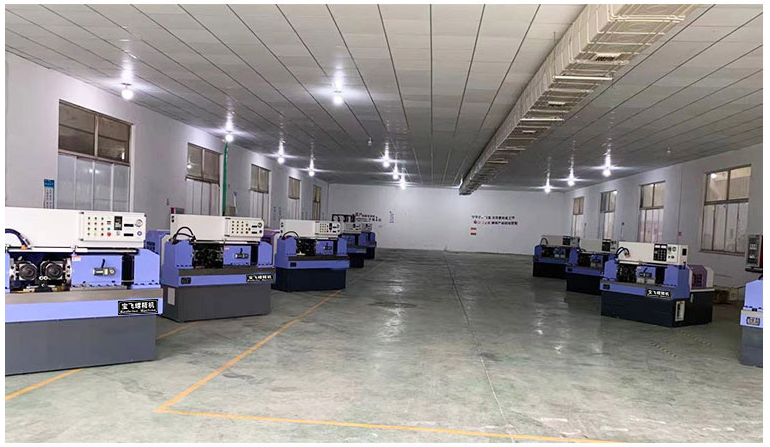
-
 Afrikaans
Afrikaans -
 Albanian
Albanian -
 Amharic
Amharic -
 Arabic
Arabic -
 Armenian
Armenian -
 Azerbaijani
Azerbaijani -
 Basque
Basque -
 Belarusian
Belarusian -
 Bengali
Bengali -
 Bosnian
Bosnian -
 Bulgarian
Bulgarian -
 Catalan
Catalan -
 Cebuano
Cebuano -
 Corsican
Corsican -
 Croatian
Croatian -
 Czech
Czech -
 Danish
Danish -
 Dutch
Dutch -
 English
English -
 Esperanto
Esperanto -
 Estonian
Estonian -
 Finnish
Finnish -
 French
French -
 Frisian
Frisian -
 Galician
Galician -
 Georgian
Georgian -
 German
German -
 Greek
Greek -
 Gujarati
Gujarati -
 Haitian Creole
Haitian Creole -
 hausa
hausa -
 hawaiian
hawaiian -
 Hebrew
Hebrew -
 Hindi
Hindi -
 Miao
Miao -
 Hungarian
Hungarian -
 Icelandic
Icelandic -
 igbo
igbo -
 Indonesian
Indonesian -
 irish
irish -
 Italian
Italian -
 Japanese
Japanese -
 Javanese
Javanese -
 Kannada
Kannada -
 kazakh
kazakh -
 Khmer
Khmer -
 Rwandese
Rwandese -
 Korean
Korean -
 Kurdish
Kurdish -
 Kyrgyz
Kyrgyz -
 Lao
Lao -
 Latin
Latin -
 Latvian
Latvian -
 Lithuanian
Lithuanian -
 Luxembourgish
Luxembourgish -
 Macedonian
Macedonian -
 Malgashi
Malgashi -
 Malay
Malay -
 Malayalam
Malayalam -
 Maltese
Maltese -
 Maori
Maori -
 Marathi
Marathi -
 Mongolian
Mongolian -
 Myanmar
Myanmar -
 Nepali
Nepali -
 Norwegian
Norwegian -
 Norwegian
Norwegian -
 Occitan
Occitan -
 Pashto
Pashto -
 Persian
Persian -
 Polish
Polish -
 Portuguese
Portuguese -
 Punjabi
Punjabi -
 Romanian
Romanian -
 Russian
Russian -
 Samoan
Samoan -
 Scottish Gaelic
Scottish Gaelic -
 Serbian
Serbian -
 Sesotho
Sesotho -
 Shona
Shona -
 Sindhi
Sindhi -
 Sinhala
Sinhala -
 Slovak
Slovak -
 Slovenian
Slovenian -
 Somali
Somali -
 Spanish
Spanish -
 Sundanese
Sundanese -
 Swahili
Swahili -
 Swedish
Swedish -
 Tagalog
Tagalog -
 Tajik
Tajik -
 Tamil
Tamil -
 Tatar
Tatar -
 Telugu
Telugu -
 Thai
Thai -
 Turkish
Turkish -
 Turkmen
Turkmen -
 Ukrainian
Ukrainian -
 Urdu
Urdu -
 Uighur
Uighur -
 Uzbek
Uzbek -
 Vietnamese
Vietnamese -
 Welsh
Welsh -
 Bantu
Bantu -
 Yiddish
Yiddish -
 Yoruba
Yoruba -
 Zulu
Zulu
Understanding the Operation of Custom Thread Rolling Machines in Manufacturing Processes
The Working Principles of Custom Thread Rolling Machines
Thread rolling is a critical manufacturing process used to produce threaded components in various industries, from automotive to aerospace. Among the tools utilized in this process, custom thread rolling machines stand out due to their ability to create high-precision threads efficiently. Understanding the working principles and features of these machines is essential for optimizing manufacturing processes.
What is Thread Rolling?
Thread rolling involves the deformation of a blank workpiece through the application of pressure to create threads. This process differs from traditional cutting methods as it does not remove material; instead, it reshapes the existing metal. This method ensures a higher strength product due to the cold work hardening of the material, producing threads with greater fatigue resistance and surface finish compared to cut threads.
Custom Thread Rolling Machines An Overview
Custom thread rolling machines are specialized devices designed to meet specific threading requirements. These machines can vary in size, capability, and configuration, depending on the application. Unlike standard machines, custom models are tailored to produce unique thread profiles or accommodate specific production volumes.
These machines typically work with a range of materials, including steel, aluminum, and other alloys. They can also handle different thread forms, such as external threads, internal threads, and various thread pitches.
Working Principles
1. Preparation of the Workpiece The process begins with feeding a cylindrical workpiece into the machine. The workpiece must be accurately cut to length and prepped to ensure successful thread formation.
2. Alignment and Setup Once the workpiece is in place, the machine aligns it with the rolling dies. This alignment is crucial, as any misalignment can compromise thread quality. Custom machines often have adjustable features to ensure proper alignment and accommodate different sizes and shapes.
custom thread rolling machine working

3. Rolling Process The core of the operation involves the rolling action itself. The machine employs two or more hardened steel dies that have the negative profile of the desired thread. As the workpiece is fed between these dies, they rotate and apply significant pressure, pushing the material outward to form threads.
This process is typically completed in a matter of seconds, which maximizes production efficiency. The pressure causes the material to flow, creating threads that adhere to strict tolerances.
4. Cooling and Inspection To manage the heat generated from the rolling process, some machines include a cooling system. After the rolling is complete, the threaded workpieces often undergo inspection to ensure they meet quality standards. This can involve measuring thread dimensions, checking for defects, and verifying surface finish.
5. Finishing Touches Depending on the application, additional processes may follow, such as heat treatment, plating, or coating. These additional steps enhance the performance or aesthetic quality of the final product.
Advantages of Custom Thread Rolling Machines
The use of custom thread rolling machines offers several advantages
- Increased Strength and Durability The cold forming process improves material properties, resulting in stronger threads that can better withstand stress and fatigue. - Enhanced Precision Custom machines are designed for specific applications, allowing for tighter tolerances and better surface finishes. - Reduced Waste Since thread rolling reshapes material instead of cutting it away, there is less scrap material generated, leading to cost savings. - High Production Rates The speed and efficiency of the process allow manufacturers to produce large quantities of threaded components in less time.
Conclusion
In an ever-competitive manufacturing landscape, custom thread rolling machines provide a robust solution for producing high-quality threaded components. Understanding their working principles and benefits can help manufacturers leverage these machines to enhance their production capabilities and meet the demanding needs of various industries. As technology continues to advance, the role of custom thread rolling machines will undoubtedly become even more critical in achieving precision and efficiency in manufacturing processes.
